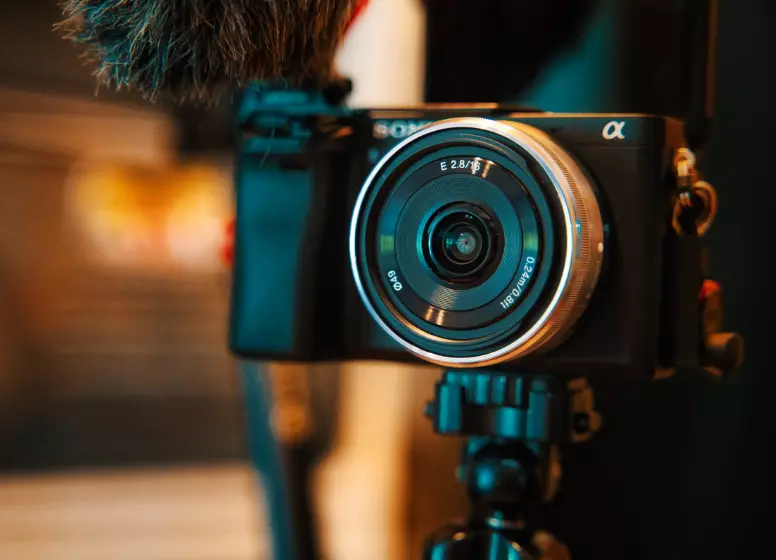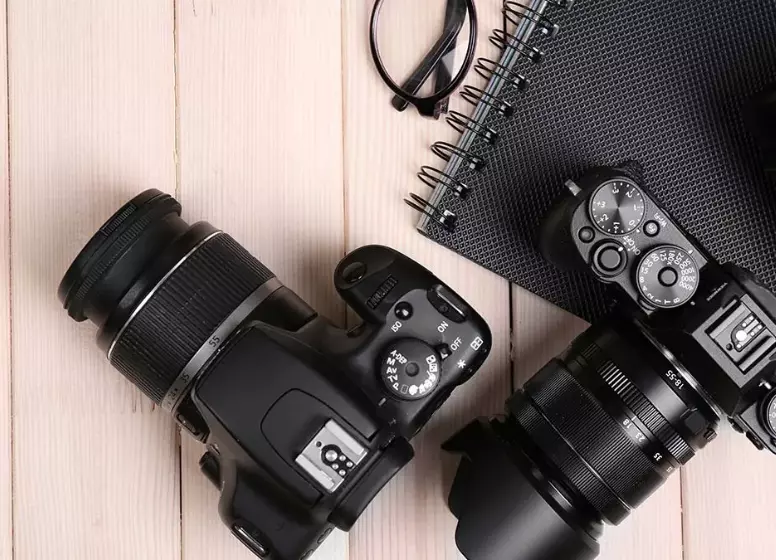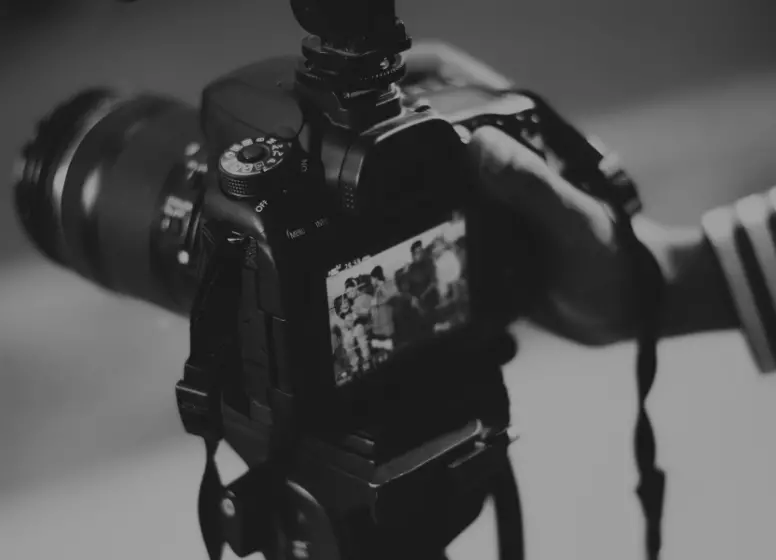Given we have made of profession from the world of photography, there is one question the team here gets asked all the time. Which camera should I buy? Whether it is friends or people we know through the industry, people are always after some advice on what to buy. Should I buy a DSLR or a mirrorless camera? Is a more expensive camera better? What is the best camera under $400? Is a camera under $100 any good?
Trying to decide which camera you should buy can be a daunting task. There is a huge range of products out there, many accessories, and all at a wide price range. Some photographers are experienced and know what to look for, while others are new to the space and know what they need a camera for but not much more.
Are you looking for a new lens as well? then check out our new Lens Quiz to help guide you
Which Camera Lens is Best For Me? Take Our Quiz in 2025 – Photography Revision
Which Camera should I buy?
In short, there is no ‘one size fits all’ answer to the question “Which Camera should I buy”. You will need to do your homework, stick to a budget and make sure what you are buying is fit for purpose. A camera for wedding photography is very different from a camera for someone looking to get into astrophotography.
Camera Quiz
So we decided to create a guide on the best cameras to buy. The team has performed hours of research on the market and we also asked many photographers in the market for their views. We collated a broad range of data and put it in the form of a quiz to help guide you through the process.
The quiz is simple and will help you determine the best camera based on a series of carefully crafted questions. The guide is for both professional photographers and newbies to the area.
This is a completely independent review. We are not tied to any one manufacturer, nor does anyone sponsor us. We made these choices with 100% neutrality and always with you the consumer in mind. It was fun pulling this guide together and it has definitely educated us on the broad range of cameras available in the market. They just keep getting better and better.
We have updated the quiz for 2024 so there is no better time to take the quiz.
Considerations before buying a camera
Before diving into the details, there are a few important factors to consider when buying a camera:
Budget
Determining your budget is the first step in narrowing down your options. Cameras can vary significantly in price, so it’s essential to set a realistic budget that aligns with your financial resources.
Purpose
Identify the primary purpose for which you will be using the camera. Are you interested in photography, videography, or both? Do you plan to use it for professional work or personal use? Clarifying your purpose will help you prioritize certain features and functionalities.
User Level
Consider your experience level as a photographer. Are you a beginner looking for a user-friendly camera, or are you an advanced user seeking advanced manual controls and settings?
Features and Specifications
Take into account the specific features and specifications you require in a camera. This may include factors such as image resolution, autofocus system, burst rate, connectivity options, and more. Make a list of the features that are important to you to narrow down your choices.
Types of Cameras
There are several types of cameras available, each with its own advantages and disadvantages. Let’s explore some of the most popular options:
DSLR Cameras
Digital Single Lens Reflex (DSLR) cameras are widely used by professional photographers. They offer excellent image quality, interchangeable lenses, and advanced manual controls. DSLRs are known for their optical viewfinder and fast autofocus performance.
Mirrorless Cameras
Mirrorless cameras have gained significant popularity in recent years. They are compact, lightweight, and offer similar image quality to DSLRs. The absence of a mirror allows for electronic viewfinders and continuous autofocus during video recording.
Point-and-Shoot Cameras
Point-and-shoot cameras are small, portable, and easy to use. They are great for casual photography and offer automatic settings for convenience. However, their image quality and manual control options are usually limited compared to DSLRs or mirrorless cameras.
Action Cameras
Action cameras are specifically designed for capturing adventurous activities such as sports, underwater diving, or extreme sports. They are compact, rugged, and can be mounted on various surfaces or accessories. Action cameras excel in capturing high-quality video footage in challenging environments.
Factors to consider when choosing a camera
Now that you are familiar with different camera types, let’s delve into the essential factors to consider before making your final decision:
Image Quality
Image quality is determined by factors such as sensor size, resolution, dynamic range, and color accuracy. A larger sensor size generally results in better image quality, especially in low-light conditions.
Sensor Size
Sensor size plays a crucial role in determining image quality and low-light performance. Full-frame sensors are larger and tend to offer superior image quality, but they are also more expensive. APS-C and Micro Four Thirds sensors are smaller but still deliver excellent results.
Lens Options
The availability and variety of lenses are essential, particularly if you plan to expand your photography skills. Consider the lens ecosystem and the compatibility of different lenses with the camera you are considering.
Low-Light Performance
If you anticipate shooting in low-light environments or capturing night scenes, pay attention to the camera’s low-light capabilities. Look for cameras with larger pixels, wider aperture lenses, and good high ISO performance.
Video Capabilities
If you are interested in videography, consider the camera’s video capabilities. Look for features such as 4K resolution, frame rates, video stabilization, and microphone inputs.
Size and Portability
Depending on your needs, the size and portability of the camera can be crucial. If you plan to travel extensively or prefer a lightweight setup, a compact mirrorless or point-and-shoot camera might be more suitable.
Battery Life
Consider the battery life of the camera, especially if you anticipate shooting for extended periods without access to charging facilities. Look for cameras with long-lasting batteries or the option to use external battery grips.
User-Friendly Interface
Ease of use is important, particularly for beginners. A camera with an intuitive interface, an easy-to-navigate menu system, and well-placed controls can enhance your shooting experience.
Popular camera brands
When it comes to cameras, several brands have established themselves as industry leaders. Let’s take a look at some of the most popular brands known for their quality and innovation:
Canon
Canon is renowned for its extensive range of DSLR and mirrorless cameras. They offer a wide selection of lenses and accessories, making it a favorite among professionals and enthusiasts alike.
Nikon
Nikon is another well-established brand known for its DSLR and mirrorless cameras. They have a reputation for excellent image quality, robust build, and a vast lens lineup.
Sony
Sony has gained significant market share with its innovative mirrorless cameras. They offer cutting-edge technology, superb autofocus capabilities, and high-quality image sensors.
Fujifilm
Fujifilm is known for its retro-inspired mirrorless cameras that combine style and performance. They have a unique approach to image processing, producing exceptional colors and film simulations.
Panasonic
Panasonic is renowned for its mirrorless cameras, particularly in the realm of video recording. Their cameras often come with advanced video features and excellent video autofocus performance.
Recommendations based on user needs
Based on specific user needs, here are some recommendations for different scenarios:
Best Beginner Cameras for Nature and Wildlife Photography
The Best Cameras for filmmaking on a budget
Best Cameras for Sports Photography
9 Best HDR Cameras For Photography
The Best Cameras for Film Students
Best Cameras for Photojournalism
Good luck with your research and do let us know how you get on. We are always keen to hear about your experiences with which camera you bought and how you get on with it.
Final Thoughts
Choosing the right camera requires careful consideration of your budget, purpose, user level, and desired features. Understanding the different types of cameras, factors to consider, and popular brands can guide you in making an informed decision. Remember to prioritize your specific needs and preferences to find the perfect camera that will support your creative journey.







Comments are closed.